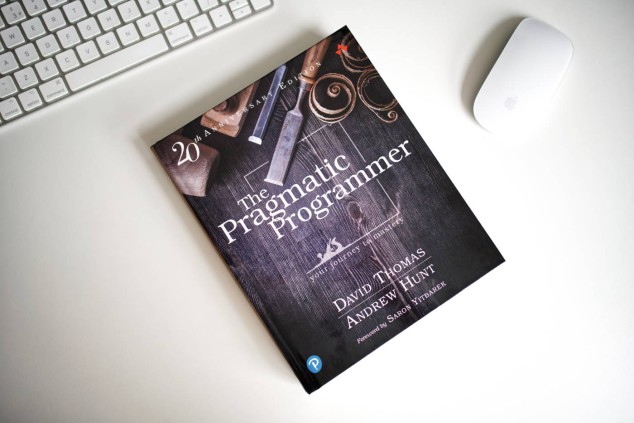Detailed Pragmatic Programmer Tips Series:

Pragmatic Programmer Book
Book introduction
“The Pragmatic Programmer: Your Journey To Mastery” by David Thomas and Andrew Hunt is a classical book published in 1999 and is a book about how to become a pragmatic programmer. Which really means a ‘Good Programmer.’
Yes, it was published about 20 years ago. But this book still provides many insights that are very relevant to programmers or software engineers, as some people might call them these days.
About Author
David Thomas and Andrew Hunt are both computer and software professionals and authors of many software development books. But they are well known and partners for this Pragmatic Programmer book, and together they run the Pragmatic Bookshelf series of books for software developers.
High-level Overview
The book starts with describing the meaning of “pragmatic” and describes some of the characteristics of a pragmatic programmer. The author describes a pragmatic philosophy followed by a pragmatic approach. After that it describes the essentials of good basic tools and the benefits of proper use of them.
Gradually this book starts describing pragmatic paranoia, the effectiveness of decoupling, and concurrency. Then it also describes the tips and tricks we should keep in mind while coding. Finally, this book ends with the necessary steps that need to be taken before and after starting a project, followed by the pragmatic project and pragmatic team characteristics and tips.
Key Takeaways
- Pragmatic means skilled in business and fit for use. Actually it is a matter of attitude, a style, and a philosophy of approaching problems and solutions.
- There are some common characteristics that make someone pragmatic. And all of them can be learned and practiced.
- Pragmatic programmers are also good team players. If you can be pragmatic and practice it, then you will be someone to love working with.
- A pragmatic programmer is sensible and good at designing and implementing programs or software.
- A pragmatic programmer is good at using tools and debugging.
- Pragmatic programmers write decoupled, concurrent, and thread-safe code.
- Pragmatic programmers maintain some common best practices while coding and working.
Conclusion
Being pragmatic is a matter of time and patience, and it does not grow in one day. So start practicing and following the tips. Always aware and professional at your work. Always express your feelings and findings, and force your team and organization to fix, follow, and practice them.
Sometimes you can feel that people of your team or your organization do not value your opinion or work. In this case, please remember, as Martin Fowler says: “You can change your organization or change your organization.”
🚀 You have agency; it’s your life, your decision. Celebrate it and have fun. 🚀